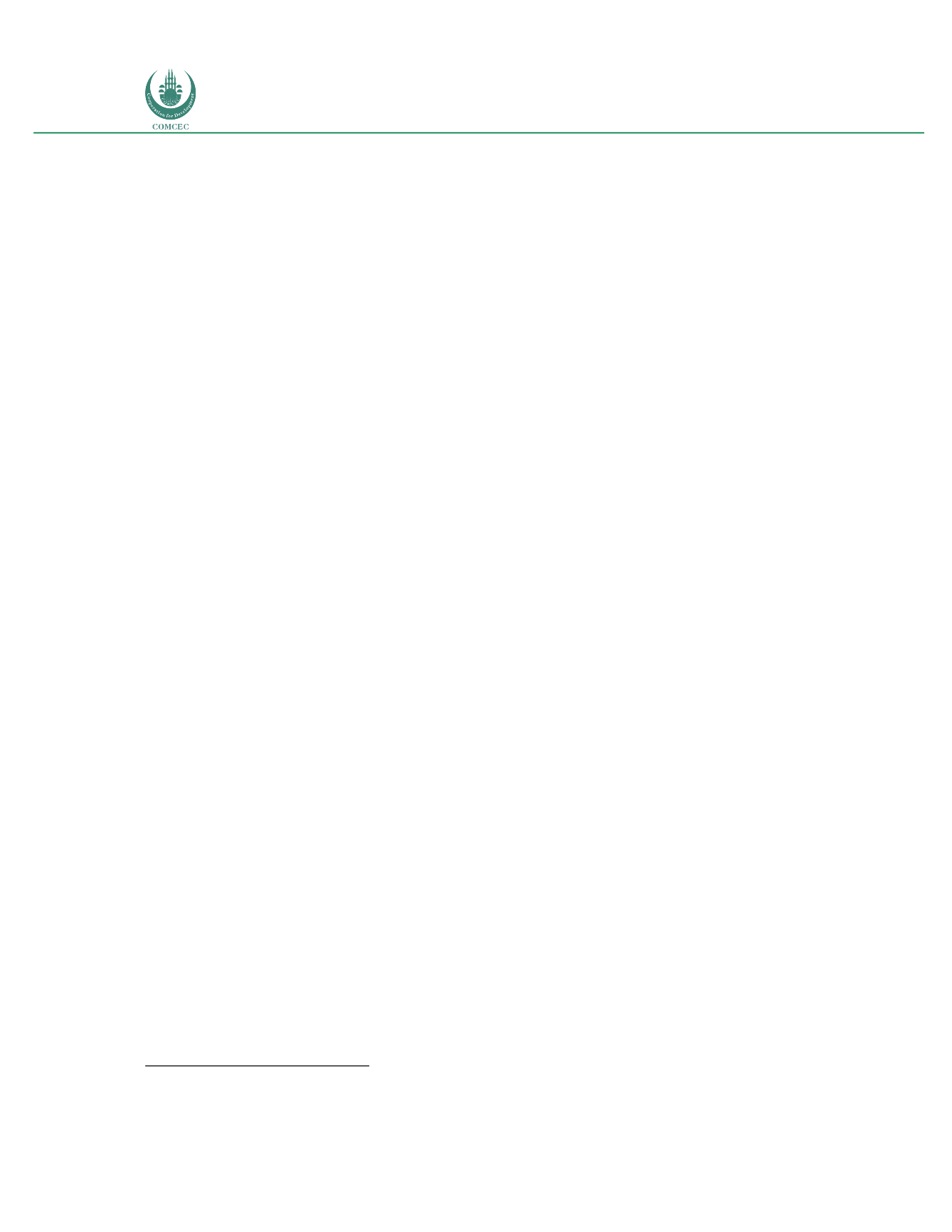

Increasing Broadband Internet Penetration
In the OIC Member Countries
112
•
Project e-gov: digitizing the whole government administration;
•
Decentralization of industries to the interior of the country; and
•
Promotion of foreign direct investment.
Given the national development priorities, operators consider fiber deployment, as a much
needed requisite infrastructure. While the business case is not always positive, in the long run
the investment has strategic importance to achieving the country’s development
58
.
In addition, for the two largest operators, Orange and MTN, fiber optic deployment is
envisioned as a competitive tool to either protect its position (in the case of Orange) or gain
share (in the case of MTN)
59
. Both operators deploying fiber to the consumer premise
recognize that the business case still cannot support the investment. For example, the current
fastest ADSL offer (8 Mbps) in Cote d’Ivoire is marketed at CFA 45,000 per month (US$ 74.60).
It is estimated that the “psychological” price (also called willingness to pay) for a residential
fiber connection should be approximately CFA 50,000 (or US$ 83). Under this pricing
assumption, given the income distribution of the Cote d’Ivoire, the addressable market beyond
certain neighborhoods in Abidjan is quite small. In order to develop the investment business
case under more favorable terms, operators have to increase the ARPU (Average Revenue Per
User) by including other services that can pay off the fiber optic deployment. However, these
services are not yet defined.
The other variable that could improve the business case is a reduction in operating expenses
(maintenance of fiber plant is lower than copper), and copper replacement (significant amount
of copper plant is systematically stolen). This is one of the factors being quantified at this stage
to try to develop a viable business case for fiber optic deployment. All in all, independently
from the uncertainties surrounding the returns on fiber investments, both major carriers in
Cote d’Ivoire are proceeding along this path driven primarily by competitive considerations (in
other words, the fear of being the second mover and thereby losing competitive advantage).
To sum up, broadband capital spending in Cote d’Ivoire is affected by a number of factors that
either encourage or discourage investment (see table 54).
58
Source: Field trip interviews.
59
Source: Field trip interviews.
















